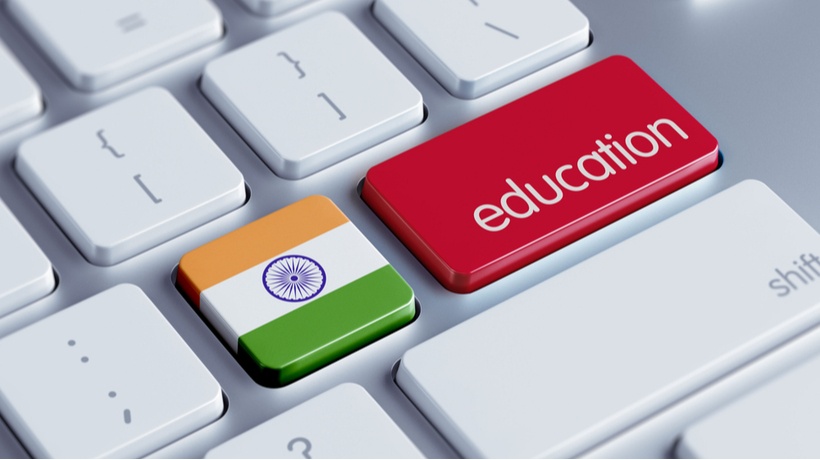What Is Gaining Traction In Education Today?
“By education I mean an all-round drawing of the best in a child and man in body, mind, and spirit.”
- Mahatma Gandhi
The Indian education system is in a state of flux. No longer are there "gurukuls" and an insistence on rote learning, and an effort is made by institutions to focus on the all-round development of the students. This shift happened gradually when popular cinema and mass media started to put stress on cognitive development over memorizing.
Today the educational scene in India is booming as universities are offering MBAs in hospital management and India’s top business schools continue to draw the crowd. This is not all. Students now have the chance to pursue an M.Sc. in Big Data analytics in India, PGDM in banking and financial services, and marketing management. Globally, the rise of Parag Agarwal, CEO of Twitter; Satya Nadella, CEO of Microsoft; Leena Nair, global CEO of Chanel; Sundar Pichai, Google CEO and many other Indian-origin scientists is a testament to the fact that talented people from India can achieve great heights.
So, wherein lies the problem? A criticism that is leveled at the Indian education system is that it teaches not "what" to think but focuses on "how" to think in a given situation. Furthermore, education in India is all about preparing students to pass exams. Whether it be belling the CAT (common aptitude test), preparing for the UPSC (civil service exams), or the effort to secure a top position in the best MBA colleges in India—Indian students are always readying themselves for a battle. Let’s talk about the current trends witnessed in the Indian education system:
1. Rise Of Virtual Learning
Technology and the internet have long made their presence felt. The pandemic only accelerated the need for technology. The educational sector was not left untouched as well. One can sit at home and earn an MBA in business analytics now. There are plenty of online programs ranging from an MBA in health care management to opportunities to pursue a master's in data analytics from prestigious institutions. Google classrooms and massive open online courses (MOOCs) are here to stay.
According to KPMG and Google, the online education industry was set to be a $1.96 billion industry by 2021. Recently, the union budget for the financial year 2023 has allocated approximately Rs 1043 billion for the education sector, paving the way for the much-needed digital push. So there is a rise in digital learning resources and the blending of conventional teaching with new technologies.
2. Emphasis On Concept-Based Learning
Even the "National Education Policy 2020" lays emphasis on "how to learn" to help students prepare for a world where Big Data rules the roost. Hence, it is important to navigate tricky waters by encouraging analysis, honing investigative skills, and developing apt solutions with the help of technology.
No longer is there an emphasis on marks, or rote learning. Presently, there is a focus on students' holistic development in both academic and non-academic spheres. Moreover, teachers encourage students to "learn by doing" things. This is a huge shift as the armchair theorist approach is no longer in vogue. Students are encouraged to do coding and accounting, and they no longer need to adhere to the "do what’s told" method. Students have the agency to discover where their passion lies. Courses like banking, financial services, business management, and hospital administration have emerged to solve real-life problems.
3. Gamification Of Learning
There is a rising trend for trying out game elements in the learning environment. The Indian education system is systematically being tailored to capture the interest of students.
Gamification will make learning more effective and enjoyable, and inspire pupils to continue learning. Gamification is the only way that will capture the interest of Gen Z to succeed in a digitally powered application-based economy. Recently courses like MBA in hospital administration offer gamification techniques for healthcare training. Not only is this increasing engagement, but it is also preparing students to trust their intuition.
4. Demand For Non-Conventional Courses
The biggest trend so far is the demand for vocational courses such as marketing, banking, financial services, healthcare management, data analytics, advertisement, PR, etc. An MBA is one of the most sought-after degrees today! Apart from this, there are YouTubers, social media influencers, and those generating passive incomes by following their passion at home. The rise in creativity and critical thinking is likely to encourage logical decision-making and innovation.
5. Role Of Artificial Intelligence (AI)
AI in education is making its presence felt. It is personalizing the learning journey, and students' assessments, to provide valuable insights. This is all set to assist today’s Gen Z to become the innovators and entrepreneurs of tomorrow.
Next Steps
Despite living in the shadow of the pandemic, education is the only sector that has flourished. As the report of the World Economic Forum states, critical thinking and problem-solving will be the top skills sought by employers. Employers are looking for self-management skills including resilience, flexibility, active learning, and handling stress in this current time. The need to do away with grades (one can hear the collective hurrah from students!) and encouraging skill-based learning is the demand of the present. The Indian education system is now stepping up to the challenge and promoting a more innovative learning system.








